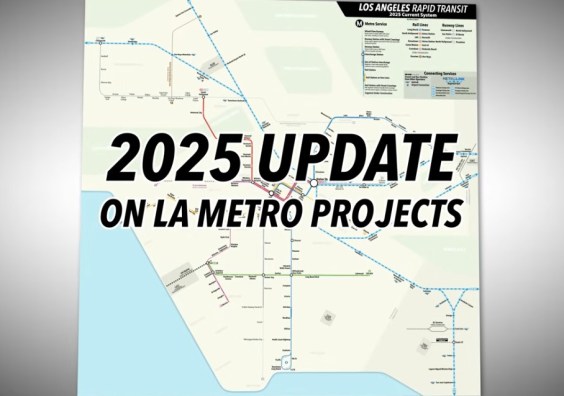
In a blockbuster development, New York's MTA has withdrawn from membership in APTA, the industry organization representing American transit agencies.
The MTA's rejection of APTA is a big deal. The agency accounts for 35 percent of all transit trips in the nation, and its annual fee to support APTA is larger than what other agencies contribute. The future of APTA is up in the air, and the way transit agencies share information and try to shape federal policy seems bound to change.
TransitCenter says the rebellion is understandable:
The essence of the MTA’s complaint is that APTA is not worth the investment. In the letter, officials noted the agency pays $400,000 per year because of its size but in return has little influence within the organization (though it’s worth noting even that fee pales in comparison with the salary of APTA President Michael Melaniphy, whose total compensation approached $900,000 in 2013). Not one of the major northeast transit agencies is on APTA’s governing executive committee despite their relative importance to U.S. transit policy. For no readily apparent reason, members of the committee include people from six relatively small agencies in California.
Though at first glance just a case of some transit industry inside baseball, the MTA’s withdrawal hints at a larger disagreement in how transit agencies view APTA’s purpose as an industry association.
For a generation, APTA has served as a good cheerleader for transit in Washington, never meeting a funding story it couldn’t spin positively or a transit project it didn’t like. When President Obama signed into law last December the first major piece of transportation legislation in three years (known as the FAST Act), APTA’s chairwoman called it "a great day for America."
As transit advocates know, the FAST Act basically maintained the pro-highway status quo. Yet APTA’s stance did not stem from a misunderstanding, but rather from an attitude that it is better for public transportation providers to applaud the sliver of federal funding they have carved out rather than fight for changes to federal policy that would meaningfully benefit transit riders and agencies...
Inadvertently or otherwise, APTA largely still promotes the idea that as long as a portion of Highway Trust Fund money flows to transit, the industry should be satisfied.
That math no longer works. For starters, voters across the country continue to express support for most pro-transit initiatives. This trend, combined with increased attention to highway boondoggles, is creating as strong a case for the importance of transit as has ever existed in the last 30 years. But not all the news is good. In real terms and on a per-capita basis, the U.S. is at a 25-year high of federal transit spending even after adjusting for inflation. Yet there has been no substantial increase in national per-capita ridership (perhaps, it should be noted, because federal highway spending is also at a 25-year high).
Elsewhere on the Network today: Broken Sidewalk reports that there's a lot to like in Louisville's new long-term transportation plan, with an emphasis on fixing roads instead of expanding them, reducing solo car commuting, and prioritizing high-quality transit service. And The Naked City considers whether Charlotte's future will be urban or suburban.





